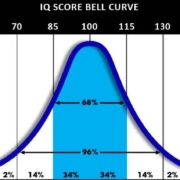In a unanimous opinion today, the Supreme Court held that “to meet its substantive obligation under the IDEA [Individuals with Disabilities Education Act], a school must offer an IEP [individualized education program] reasonably calculated to enable a child to make progress appropriate in light of the child’s circumstances. “ It should be noted that this decision will have the most significant effect on all states, and the District of Columbia, except New York, Vermont, Connecticut, Pennsylvania, New Jersey, and Delaware, which already had adopted similar higher standards.
A brief history of ENDREW F., A MINOR, BY AND THROUGH HIS PARENTS AND NEXT FRIENDS, JOSEPH F. AND JENNIFER F., PETITIONER v. DOUGLAS COUNTY SCHOOL DISTRICT RE-1 is necessary. Endrew F., a child with autism, received IEPs from preschool through fourth grade. Believing that his District’s IEPs were not doing enough to foster his academic and functional progress, his parents enrolled him in a specialized private school where he made significant progress. They then sought reimbursement from the District. The Tenth Circuit found that Endrew F. was making enough progress to satisfy the test that his “educational benefit [was] merely … more than de minimis.” Endrew’s parents appealed this decision to the Supreme Court.
The Court first addressed FAPE (Free Appropriate Public Education) in Board of Ed. Of Hendrick Hudson Central School Dist., Westchester Cty., v. Rowley. In that case, the Court held that the Act guarantees a substantively adequate program of education to all eligible children, and that this requirement is satisfied if the child’s IEP sets out an educational program that is “reasonably calculated to enable the child to receive educational benefits.” But how much “educational benefit” is necessary to satisfy FAPE? For children fully integrated in the regular classroom, this would typically require an IEP “reasonably calculated to enable the child to achieve passing marks and advance from grade to grade.” However, Rowley did not address children who were not in general education classrooms. Regarding a child who is not fully integrated in the regular classroom and is not able to achieve on grade level, the Court in today’s decision stated that, though his IEP “need not aim for grade-level advancement if that is not a reasonable prospect,” the “child’s educational program must be appropriately ambitious in light of his circumstances, just as advancement from grade to grade is appropriately ambitions for most children in the regular classroom.” “Every child should have the chance to meet challenging objectives.”
When all is said and done, a student offered an educational program providing “merely more than de minimis” progress from year to year can hardly be said to have been offered an education at all. For childrenw ith disabilities, receiving instruction that aims so low would be tantamount to “sitting idly . . . awaiting the time when they were old enough to ‘drop out.’” Rowley, 458 U. S., at 179 (some internal quotation marks omitted). The IDEA demands more.
This new standard is much more demanding than the “merely more than de minimis” standard applied by the Tenth Circuit. However, the Court rejected the argument that FAPE requires States to provide children with disabilities educational opportunities that are “substantially equal to the opportunities afforded children without disabilities.” The Court felt that should be left to Congress to decide.
The Court went on to state that “the adequacy of a given IEP turns on the unique circumstances of the child for whom it was created.” Importantly, though the Court stated that deference should be given to the “expertise and exercise of judgment by school authorities,” nevertheless the burden is still on the District to convince a reviewing court that their decisions show that “the IEP is reasonably calculated to enable the child to make progress appropriate in light of his circumstances.” Furthermore, the Court reiterated its stance that just because a child with a disability is advancing from grade to grade, it does not follow that she is automatically receiving a FAPE. This decision would also appear to require a District to aim for grade-level advancement for those not in general education classrooms, assuming it is appropriate for the child.
More analysis will follow in the coming days and weeks. But at a time of so much apprehension around education, this is a great development.







